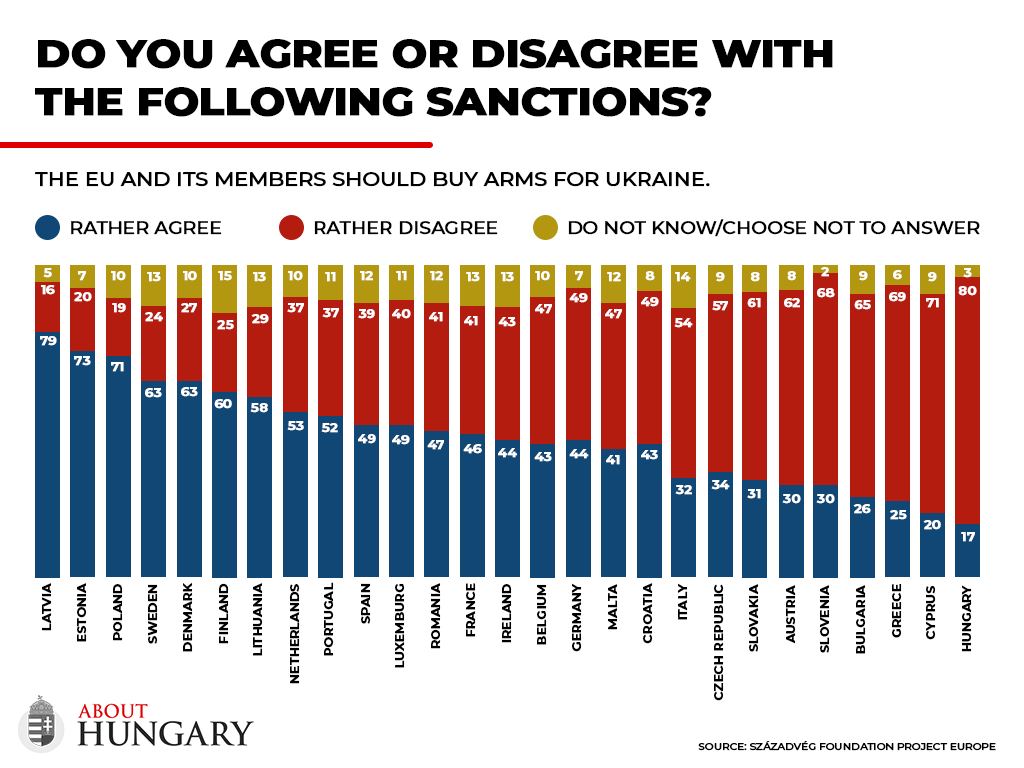According to a recent survey by the Századvég Europe Project, only nine out of the 27 EU member states had more than half of their respondents agree that the EU and its members should not give arms to Ukraine. Several member states are, nevertheless, arming Ukraine despite the disapproval of their populations.
The analysis very clearly conveys the attitudes of EU citizens toward the issue of the European community sending weapons to Ukraine. But how did we get here?
The issue of arms transfers to Ukraine and the introduction and implementation of punitive measures by Brussels have dominated the public discourse in Europe since the start of the Russian-Ukrainian war.
It should be emphasized that, similar to the sanctions imposed by Brussels, there are strong differences in opinion among Europeans regarding the issue of arming Ukraine's military.
However, the Századvég survey reveals that more people oppose arming Ukraine than support it in 13 of the EU's member states, with more than 50 percent of respondents in nine of those countries rejecting the idea.

